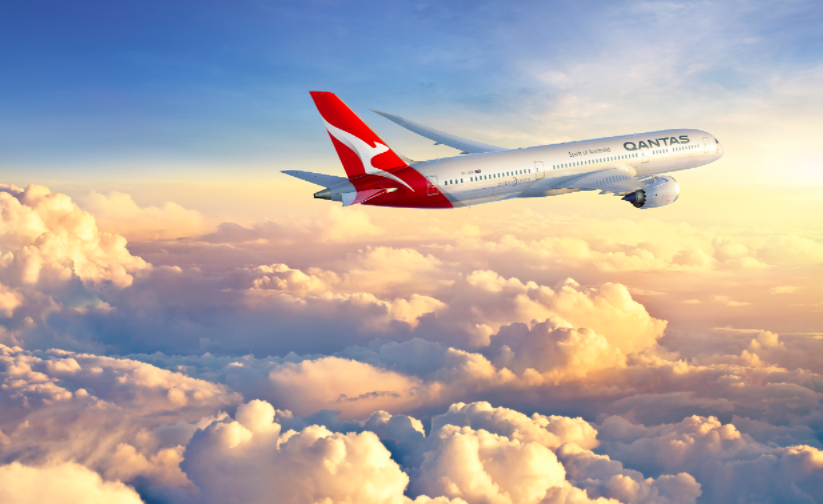The planned London to Sydney nonstop flight will be the longest haul of them all
Plane Talk: the amount of fuel used is far higher than for a one- or two-stop trip

Qantas is working on Project Sunrise to develop what will be the world’s longest flight at over 10,500 miles. These are the key issues.
What’s the biggest challenge for a London-Sydney nonstop?
Not the aircraft technology – the first 747 made the journey between Heathrow and Australia’s largest city in 1989, it just didn’t have any paying passengers onboard. The key to success: are there enough people desperate to get between the two cities as fast as possible to bankroll what will be a very expensive service?
Why is it so expensive?
Fuel and staff, two of the biggest costs for any airline. You need a lot more of both compared with a “normal” flight. That also makes a nonstop very environmentally unfriendly, because so much of the fuel is burnt to carry fuel for later in the flight.
From the planet’s point of view it’s much better to stop a couple of times. It also means you can carry freight! And it’s much better from the passenger’s point of view, in terms of jetlag and experience.
But Qantas can minimise the environmental damage by restricting baggage (or charging a fortune for it) and by limiting choice of meals and drinks: flying lots of food and booze halfway around the world just in case someone prefers a shiraz to a cabernet sauvignon is expensive business.
Won’t passengers be expecting the height of luxury?
Qantas will aim to deliver wellbeing, so instead of red wine or white wine passengers will be encouraged to drink “organic kombucha by Remedy, a live cultured, sparkling drink full of natural probiotics that assist with digestion”.
You can also expect a “hot chocolate bedtime drink with the combination of warm milk and chocolate containing the sleep-inducing amino acid Tryptophan to help prompt the body’s sleep cycle”.
But however well you sleep onboard, there’s nothing Qantas can do about the 10-hour time difference – leaving London at lunchtime, you’ll arrive in Sydney at teatime but it will feel like breakfast time. And coming back, you’ll take off around 9pm, arrive at 6am but it will be late afternoon in Australia. It will deliver the ultimate in jetlag.
So who will be onboard?
Ultra-long-haul flights rely on a significant number of business travellers being prepared to pay a premium for the speed and ease of a nonstop trip.
Some leisure passengers who visit family in Australia frequently and have no interest in a stopover will also pay over the odds for the privilege – and they may be filling the premium economy cabin. Travellers with mobility issues, for whom the airport is an especially tough experience, will also be attracted to it.
During the first year of the Heathrow-Perth link, which opened in March 2018, Qantas had an average “load factor“ of 94 per cent, meaning that only 14 seats are empty on a typical flight. The load factor is on a par with budget airlines such as easyJet and Ryanair, and way ahead of the airline’s system-wide average of filling four out of five seats.
Who won’t be onboard?
Budget travellers – it will be a premium product, though depending on loads, Qantas may occasionally offer discount flights to fill seats to people heading to other Australian cities – or onwards to New Zealand. But otherwise it will have little appeal to anyone who needs to change planes to reach their final destination.
There are relatively few major British airports – Belfast, Bristol and Inverness – without a one-stop possibility to Australia at the moment. For most of us, there are a range of connecting possibilities at attractive fares. And while in the opposite direction a few people will be connecting to Tasmania, again Melbourne, Brisbane, etc, are all accessible with one stop.
Will British Airways or Virgin Atlantic do the same?
No. The view is that London-Sydney is a very limited market with absurd competition. Virgin Atlantic has abandoned the route, and for British Airways the token daily service is just a shadow of the multiple Boeing 747s that used to depart every day to all corners of Australia. Indeed once the Qantas nonstop is flying, you might see BA abandoning Australia altogether; the Sydney link is an outlier to the standard out-and-back pattern.
Were either British Airways or Virgin Atlantic to launch a new ultra-long-haul route, I reckon it could be to Honolulu.
Subscribe to Independent Premium to bookmark this article
Want to bookmark your favourite articles and stories to read or reference later? Start your Independent Premium subscription today.

Join our commenting forum
Join thought-provoking conversations, follow other Independent readers and see their replies